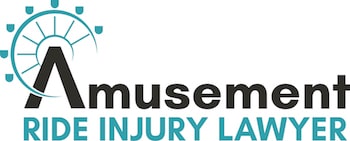Roller Coaster Injuries
Most families and children, no matter what age, love the thrill and the excitement from roller coasters. Roller coasters are so exciting, because of the danger and the adrenaline that rushes through your body. Roller coasters are supposed to feel dangerous, without actually being dangerous, but unfortunately, this is not always the case. With the high speeds, twists, turns, and abrupt nature of roller coasters, one small mistake can lead to serious injuries and huge consequences.
Common Injuries
Some common injuries that can result from roller coasters are:
- Lacerations, bruises, broken bones, torn ligaments
- Concussions and other traumatic brain injuries
- Stroke and brain aneurysms
- Paralysis
- Amputation
- Deathly falls
These injuries are few and far between, but when they do occur, someone or something is usually at fault. Unfortunately, sometimes injury can be the result of the rider not following the rules. Other times, however, injury occurs at fault of the amusement park or its staff, and could have been prevented.
Common Causes of Injury
What are the causes of roller coaster injuries?
-
- Faulty harnesses and latches
- Rusty or damaged parts
- Operator negligence (starting or stopping abruptly)
- Poorly trained staff
- Poor maintenance
- Derailment
- Infrequent or improper inspections
- Defects in design and manufacturing of the rides
- Not following height and weight requirements
- Damaged seats or cushioning
Safety Tips
Before getting on a roller coaster or allowing your children to, follow some of these safety guidelines. First, watch the roller coaster go around a few times to make sure there are no obvious issues with the ride. Also, watch the ride operators to make sure they are fully alert and paying attention. You should also follow all of the height and weight limitations. No matter how close your children may be, do not let them go on if they do not reach the requirements. Make sure to check the harnesses, seat belts, safety straps, and latches when you sit in your seat.
Next, take out all items from your pockets, take off jewelry, glasses, hats, or anything else that could fly off you, as well as tie back long hair. Do not extend arms and legs during the ride or attempt to jerk your body or stand up. Please make your children aware of these safety tips before they ride a roller coaster as well.
Getting Help
If you or someone you know is involved in a roller coaster accident, there are some things you should do, obviously after seeking medical attention. First, report the incident to the authorities, and to the park manager. Next, take pictures of the ride and where the accident took place. Get the names of witnesses and the ride operator. Lastly, take notes of all injuries and costs from medical treatment.
It is important to know that even if you signed a waiver at an amusement park, you may still be able to file a claim. Each person, injury, and case is different and there may be circumstances in your case that were not covered in the waiver. You do not deserve pain and suffering from mistakes that were no fault of your own. Injuries resulting from roller coasters can be serious, deadly, traumatic, and costly. These types of injuries can affect someone physically, mentally, and financially and place a burden on you and your entire family. If you or someone you know has suffered an injury from a roller coaster, please contact us and get the representation you need.

